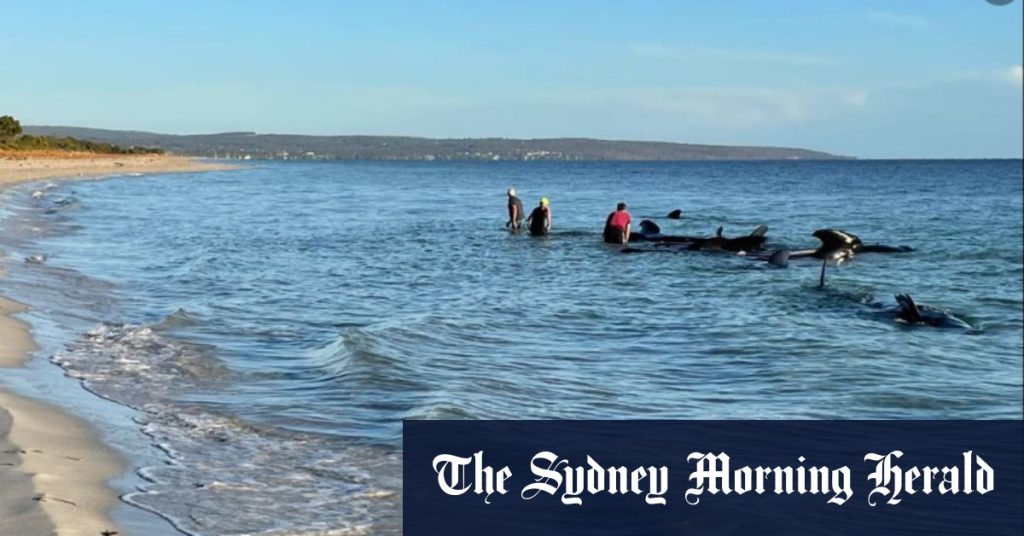In a tragic event, two large pods of pilot whales have stranded themselves on a beach, prompting a massive volunteer effort to save them. The sight of the stranded whales is described as horrible, with countless volunteers working tirelessly to try and save as many of the animals as possible. Despite their efforts, the task is daunting and only a few whales have been successfully rescued and returned to the sea. Volunteers are seen pulling the whales by their tails in an attempt to guide them back to deeper water, where they hope the pods will stay together. The emotional toll of the situation is evident, with one witness reporting that the whales were communicating with each other, adding to the heartbreak of the scene.
The City of Busselton rangers have closed the beach to the public in response to the stranding, recognizing the need for a controlled environment to facilitate the rescue efforts. This is not the first time such an event has occurred in the region, as a similar stranding of pilot whales happened off Cheynes Beach in Albany last year. Despite the heroic efforts of volunteers in that incident, around 50 whales ultimately perished. The Department of Biodiversity, Conservation and Attractions (DBCA) has noted that based on previous strandings involving pilot whales, euthanizing the stranded animals may be the most humane course of action.
The desperate attempts to save the stranded pilot whales reflect the deep compassion and dedication of the volunteers involved. The images of people pulling the whales by their tails, captured in photos, only hint at the full extent of the difficult and emotionally charged task at hand. The sight of the beached whales and the community response to the stranding serve as a reminder of the interconnectedness of humans and wildlife, and the impact that such events have on both. Despite the heartbreak and challenges faced by those involved, the determination to save as many whales as possible remains strong.
The closure of the beach to the public underscores the need for a coordinated and controlled effort to deal with the stranding. In situations like this, ensuring the safety of both the stranded animals and the volunteers working to rescue them is paramount. The decision to euthanize the beached whales, while a difficult and heart-wrenching one, is made with the welfare of the animals in mind, recognizing that the most humane outcome may be to end their suffering. Learning from past experiences, such as the stranding at Cheynes Beach last year, helps inform the response to the current situation and guides decisions to minimize further harm.
As the rescue efforts continue and the volunteers work tirelessly to save as many whales as they can, the community stands united in support of their endeavors. The emotional impact of witnessing such a heartbreaking event is palpable, as witnesses report hearing the whales communicating with each other, further highlighting the plight of these intelligent and social creatures. Despite the challenges and the heartbreaking losses, the determination to rescue the stranded whales remains unwavering, as volunteers continue to pull together in a valiant effort to save as many of the animals as possible. The tragic stranding serves as a poignant reminder of the fragility of marine life and the importance of conservation efforts to protect these majestic creatures.


